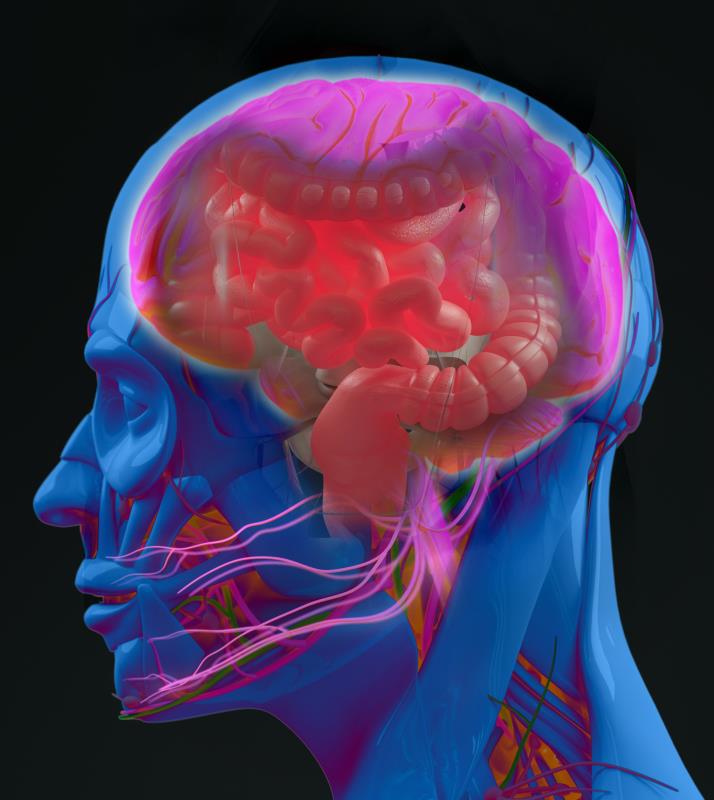
Cognitive behavioural therapy (CBT) may improve symptoms of irritable bowel syndrome (IBS), according to the follow-up results of the ACTIB* trial.
“[Our findings show] that IBS-specific CBT has the potential to provide significant improvement in terms of [symptom severity and the impact of IBS] on life, with ongoing benefits at 24 months,” said the researchers.
The core CBT framework consists of discussions on the gut-brain axis, behavioural techniques for improving bowel habits, development of stable healthy eating and exercise patterns, managing stress and emotions, addressing negative thoughts, reducing symptoms, and preventing relapse. [Gut 2007;56:1066-1071; Psychol Med 2010;40:85-94; BMJ 2005;331:435]
To evaluate the impact of a psychological approach on managing refractory IBS, 558 participants were randomized 1:1:1 to receive either the therapist-delivered telephone-based CBT (tCBT) with a detailed self-management manual, the web-based CBT (wCBT) with minimal therapist support, or usual treatment (UT)**. [Lancet Gastroenterol Hepatol 2019;doi:10.1016/S2468-1253(19)30243-2]
Compared with UT, both CBT interventions led to reductions in IBS-Symptom Severity Scores (IBS-SSS; mean estimated difference [mED], -40.5 points; p=0.002 [tCBT] and -12.9 points; p=0.33 [wCBT]) and Work and Social Adjustment Scale (WSAS) scores at 24 months (mED, -3.1 points; p<0.001 and -1.9 points; p=0.036, respectively).
However, these values were lower compared with the 12-month results for IBS-SSS (mED, -62.3 points; p<0.001 [tCBT] and -35.4 points; p=0.003 [wCBT]) and WSAS (mED, -3.5 points; p<0.001 and -2.9 points; p=0.003, respectively), all of which represent statistically significant improvements in IBS symptoms and impact on life, noted the researchers.
Despite the drop in previous gains, the 24-month results still suggest favourable benefits for IBS, noted the researchers.
More than half of the CBT recipients had a clinically significant change in IBS-SSS (≥50 points) between baseline and 24 months (71 percent and 63 percent for tCBT and wCBT, respectively). On the other hand, UT provided benefit for 46 percent of its recipients.
Forty-one adverse events were reported between 12 and 24 months across all arms; none were treatment-related.
IBS is characterized by abdominal pain and bloating and altered bowel habits that consequently affect quality of life, social functioning, and time off work, noted the researchers. “[Our findings add] robust data to the evidence base indicating that IBS-specific CBT has the potential to provide substantial long-term improvement in IBS symptoms, functional impairment, and mood, and is achievable within a usual clinical setting.”
The findings support the UK National Institute for Health and Care Excellence (NICE) guideline recommendation of offering CBT for individuals with refractory IBS. [NICE Guidelines, https://www.nice.org.uk/guidance/cg61/chapter/1-Recommendations#psychological-interventions, accessed 7 November 2019] “[However,] currently, there is insufficient access to CBT for IBS. Increasing access … could achieve long-term patient benefit,” said the researchers.
Researchers are looking to evaluate the cost-effectiveness of CBT, as well as potential markers that could help identify candidates who would most likely benefit from CBT. “Further research is needed to assess whether [both CBT interventions] can be widely disseminated in a non-trial clinical setting,” they said.